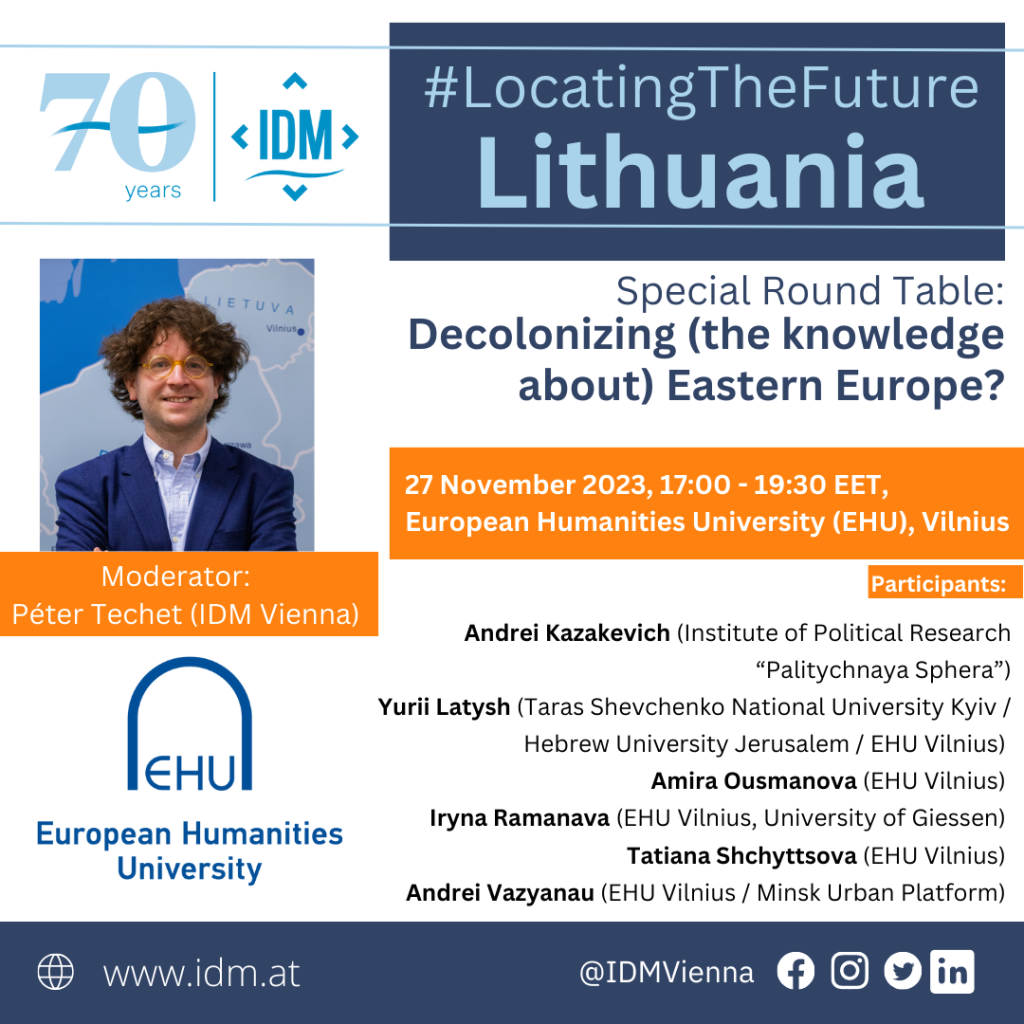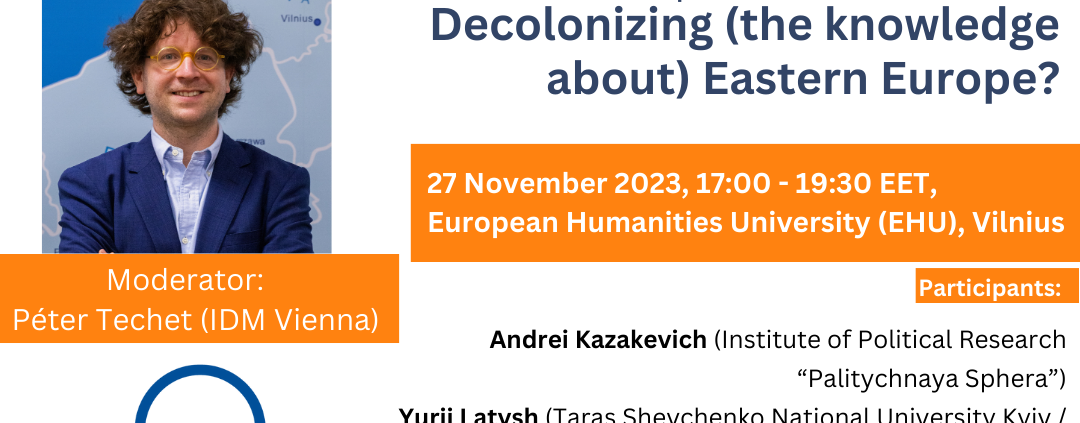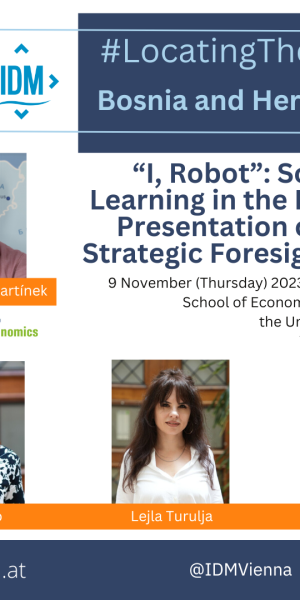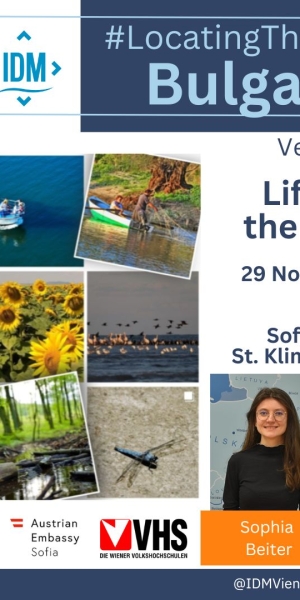Decolonizing (the knowledge about) Eastern Europe?

Joint event together with the Institute for the Danube Region and Central Europe (IDM Vienna)
Organizer: Péter Techet (IDM Vienna)
Is post-Soviet Eastern Europe a former colony? Can postcolonial approaches be applied to this region? Why is Russia still perceived in parts of the “Global South” as an anti-colonial alternative to the USA? The discussion, organized by the IDM at the European Humanities University (EHU) in Vilnius, focused on questions about how the postcolonial character of post-Soviet Eastern Europe can be understood.
After Iryna Ramanava (EHU) and Péter Techet (IDM) presented the topic, Tatiana Shchyttsova, a philosopher at EHU, spoke about the differences and similarities between the “Global South” and post-Soviet Europe. She emphasized that postcolonial approaches can provide a better understanding of the ongoing political developments in the region. While the Baltic States consider the Russian and Soviet periods as “occupation” to emphasize the foreignness of the Russian element, the Russian presence in Belarus and Ukraine led to a cultural hybridization. In this context, decolonization means the political, cultural, and linguistic detachment from Russia, which necessarily involves a certain nationalism in countries like Ukraine or Belarus. Nationalism is intended to achieve decolonization, not cultural and ethnic isolation. In this regard, Shchyttsova warned against “methodological nationalism.” The nationalizing aspects of decolonization are dialectical antitheses to colonial history that need to be overcome in a global context.
Almira Ousmanova, a social scientist at EHU, also addressed theoretical questions of decolonization in Eastern Europe, drawing on postcolonial and feminist approaches. She emphasized the necessity of the use of the Belarusian language in the cultural and academic fields. EHU is currently considering a change from Russian as the dominant language of instruction to English and Belarusian.
Both Shchyttsova and Ousmanova criticized that Western European scholarship still treats post-Soviet Eastern Europe in the context of Russia: Especially the “Global South” or certain parts of the Western European left fail to recognize the postcolonial character of Eastern Europe and the colonizing nature of Russia by understanding the colonization as an only Western phenomenon. Thus, Russia, including its Soviet past, can appear as an “anti-colonial power.” However, a deeper interest in post-Soviet Eastern Europe would reveal that colonization is multipolar, and it should not be reduced to the dichotomy of “West” vs. “Global South.”
Ukrainian historian Yurii Latysh, currently researching in Vilnius, presented the different political and legal attempts at decolonization in Ukraine. He critically views the removal of statues and street names of Russian authors. For a modern Ukraine seeking European integration, upholding minority rights, including those of Hungarian, Polish, or Romanian minorities, is strategically important to maintain good relations with EU countries. Latysh also explored whether decolonization and nationalization promote an ethnic or civic understanding of the nation.
Andrei Vazyanau, a sociologist at EHU and urban activist from Belarus, explored different possibilities of identification, noting that ethnicity, language, and nation are not synonymous in post-Soviet Eastern Europe. Therefore, nation-building does not require homogenization of language and an ethnic understanding of the nation.
In the debate, it was emphasized that post-Soviet Eastern Europe must be recognized by the Western academic community as a postcolonial space and by the politics of the “Global South” as a valid example of (de)colonization. However, the reason why post-Soviet Eastern Europe is not accepted as a history of colonization, as some participants argued, is related to the “racial” aspect: Colonization in Post-Soviet Eastern Europe did not rely on racial suppression and hierarchy.



